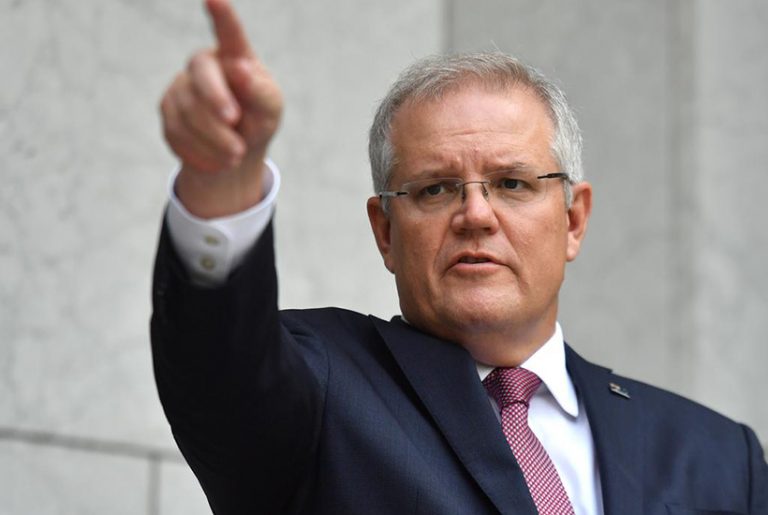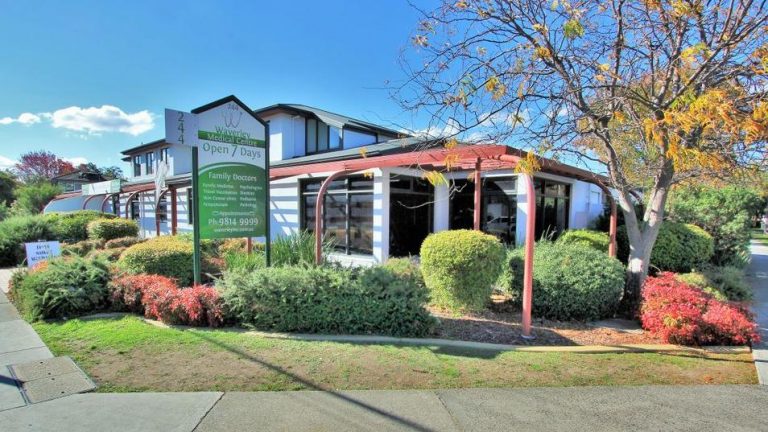Prime Minister Scott Morrison and Treasurer Josh Frydenberg were getting the same message as me: an all out, no holds barred “dog-eat-dog” war had broken out between commercial tenants and landlords.
Unchecked, it had the potential to damage the whole hibernation program. I wrote about the war on Thursday and then on Friday morning gave much more detail prior to the government announcement.
Morrison could not allow the landlord-tenant war to continue over the weekend, so stepped in and announced that there would be an industry-wide code of practice based on proportionate damage.
He made the in-principle announcement before the arrangement was concluded to gain a short term truce. That was good work.
MORE: Commercial landlords ‘screaming’ for relief on land tax, rates
The big shopping centre complexes have been getting their own way for decades and this time around there were to be rental deals that are based on current, reduced, turnover. But if things continue as they have been, Morrison and Frydenberg may be required to bash a few heads tighter and give severe punishment for both delinquent landlords and tenants. I emphasise that both sides share the blame. The “dog-eat-dog” way is played two ways
First, medium-sized managers are being told by tenant after tenant — many of whom are large overseas companies — that the tenants do not plan to pay rent for six months, taking advantage of the Prime Minister’s edict that there can be no evictions.
The managers must then go to their financiers, bank or non-bank, explaining what has happened. The lenders may accommodate them, but it has shattered confidence and makes it likely that values will not return to the old levels after the crisis is over. Lenders either in the short or longer term will require more asset cover and that usually means sales.
On the other side of the “dog-eat-dog” game, some of the larger centres feel they have strength and are treating their smaller tenants harshly, making it very hard to gain rent relief. I am hearing some terrible stories.
The “dog eat dog” world is reducing commercial property values over wide areas, but particularly in retail. There is nervousness that housing will not escape the downward thrust.
Less asset cover
Both bank and non-bank property financiers are suddenly waking up that their loans no longer have the same asset cover. Most banks will sit tight and take no action to demand more asset cover until six months has passed.
Morrison may use access to bank finance as his stick to get both parties to come to the table and avoid precipitate action in the next six months.
But many non-banks will not wait six months, because they can’t afford to take the risk. That means both commercial and investor-owned residential properties may come onto the market at a time when buyers are looking for bargains.
The extent of the fall in stock market retail property values is shown by shares in Vicinity which owns or manages around 60 centres including Australia’s premier shopping centre, Chadstone.
Vicinity shares are selling at around 60% of net tangible assets solemnly declared by directors and auditors just three months ago on December 31. Other non-retail commercial values have not fallen as far.
Will those stockmarket values translate into property sale prices over time?
Industry super fund Hostplus is punting that the share market is overreacting so while trustees wrote down their unlisted property and infrastructure by between 7.5% and 10%, it boldly declared: “The current decreases in the valuations of Hostplus’s unlisted asset investments are, based on our analysis, less extreme compared to the current heightened volatility being experienced in listed markets.
“It is that long-term price stability which is a key positive attribute of our strategic investment in unlisted assets.
“These revaluations have already been included in the fund’s unit pricing and are reflected in account balances.”
That means that Hostplus members can switch to cash or, if they qualify under the government rules, take money out of the fund at values well above the stockmarket values.
If everybody “sits pat” then no harm will be done. But if there is a significant withdrawal or switch to cash (which can be done at short notice) then existing members will suffer badly if the stock market turns out to be right.
Untimely withdrawals
Over the years I have seen unlisted property trusts hit hard when they allowed withdrawals at inflated values as measured by the share market. It’s a high-risk strategy. APRA needs to monitor the situation on a day by day basis.
The commercial property market got the jitters this week when an industry fund canvassed the idea of selling some property. Overall the industry funds have been able to sell shares and bonds to cover fund withdrawals under the government scheme – especially as the JobKeeper plan will cut withdrawals.
The larger funds will solve their liquidity issues, and many have written their unlisted values down to close to sharemarket values so they can manage any switch to cash without damaging existing members.
Meanwhile, as I explained yesterday, prepare for a big fall in dwellings coming on to the market.
Those investors who are highly geared are nervously telling their non-bank financiers that tenants are not paying, although JobKeeper may help.
They fear they will be required to sell unless they have cash to put in. Where the financier is a bank there is usually time.
This article originally appeared on www.theaustralian.com.au/property.








